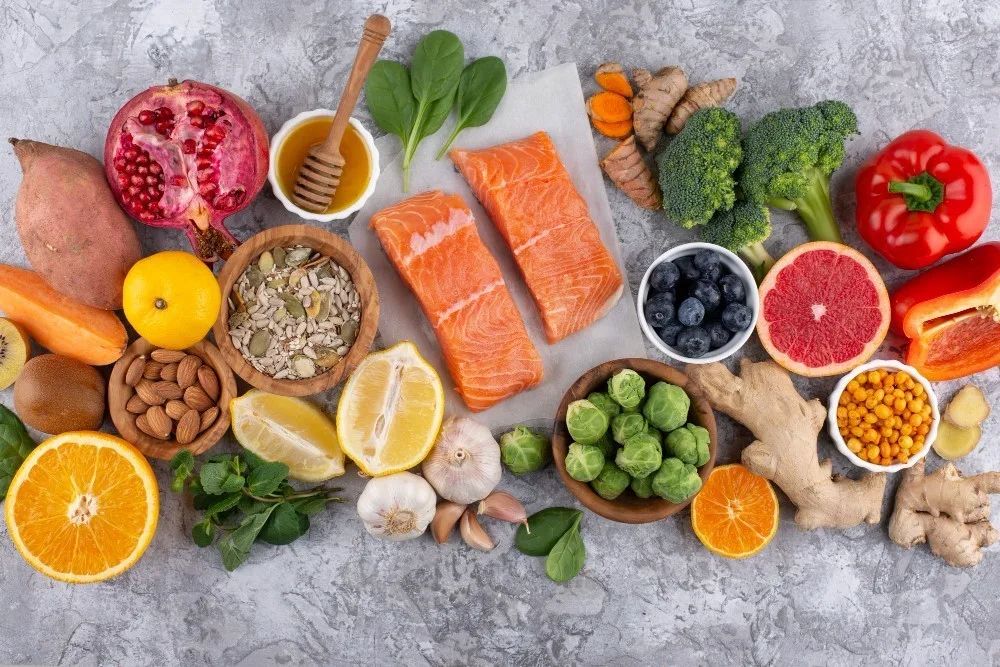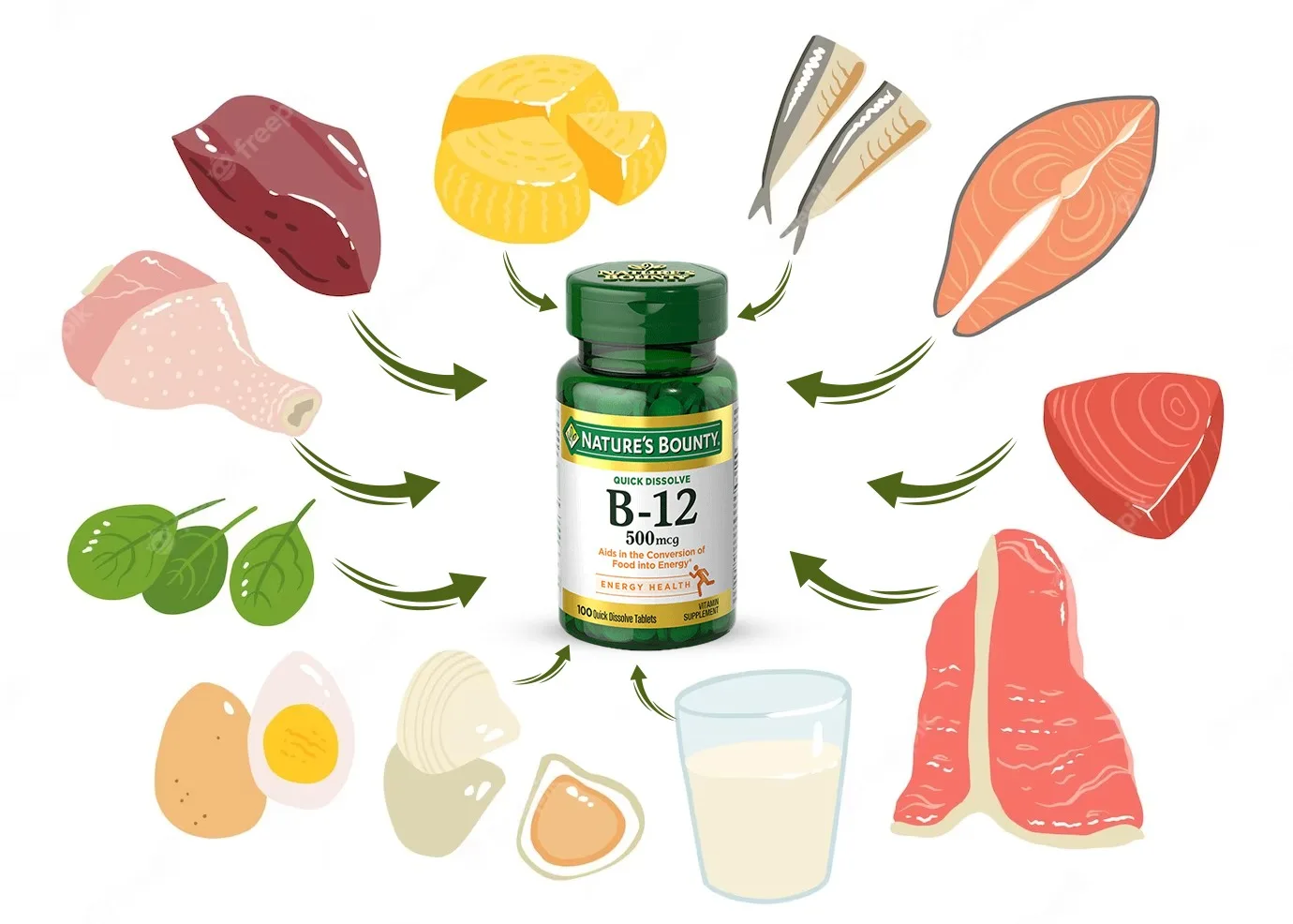Could you be at risk of Vitamin B12 deficiency? Find out NOW!
Do you know who could be at risk of vitamin B12 deficiency? It can happen if your diet lacks sufficient amounts of it or if your body struggles to absorb it from the food you consume.
Are you at risk of vitamin B12 deficiency? Keep an eye out if you are:
- An older adult
- Have gastrointestinal disorders like Crohn’s or celiac disease
- Individuals who underwent gastric surgeries such as bariatric or bowel resection procedures
- Strictly follow a vegan diet
- Take metformin for blood sugar control
- Take proton pump inhibitors for chronic heartburn
Stay informed and know if you’re at risk of B12 deficiency.

Why consuming Vitamin B-12 is important?
Humans require energy to function properly, just as generators require fuel and computers require electricity. This energy is obtained from the food we eat, which contains various vitamins and minerals. Vitamin B-12 is essential for converting food into energy.
To maintain good health, it’s important for the body to have vitamin B12. This vitamin helps make red blood cells and DNA, keeps nerve cells functioning properly, and performs other important tasks. Adults should aim to consume 2.4 micrograms of B12 per day.
Pernicious anemia is the most common cause of clinically evident vitamin B12 deficiency around the world. In 8–9% of adults aged 65 and older, decreases secretion of hydrochloric acid in the stomach and thus decreases absorption of vitamin B12.
SOURCES OF VITAMIN B-12:
Since the body can’t make this vitamin on its own, it must be obtained through food or supplements. Naturally occurring active vitamin B12 is only present in animal products and also some plant-based foods like seaweed and fermented products contain vitamin B12, they mostly provide it in its inactive form, which is not enough for your body to use.
B12 is found naturally in animal products like fish, meat, eggs, and dairy. Look for fortified breakfast cereals and nutritional yeasts as alternative sources of B12 with high availability.
Some additional sources include:
- Consume animal liver and kidneys.
- Clams, small and chewy shellfish, are highly nutritious.
- Beef is a good option.
- Fortified cereal can be a great source of Vitamin B12 for vegetarians and vegans as it is synthetic.
- Tuna is a good source.
- Salmon is one of the best sources of omega-3 fatty acids and B vitamins.
- Milk and dairy products are a healthy choice.
- Don’t forget to include eggs in your diet.

Maintain your levels of Vitamin B-12
To increase your B12 levels, you can take Vitamin B-12 in various forms such as quick dissolve tablets or normal coated tablets like Vitamin B-12 1000mcg. Even a mild B12 deficiency can be corrected with a standard multivitamin, so give it a try and don’t wait any longer.
